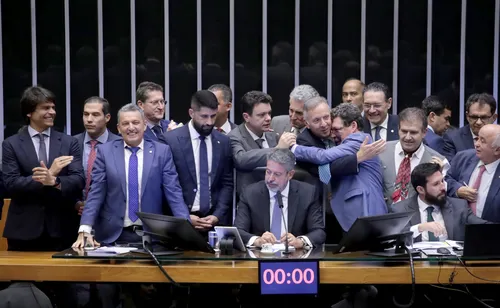On Tuesday (17), the Brazilian Congress approved the tax reform regulation, considered a government victory that also pleased the so-called “Centrão,” an unstable coalition of conservative politicians. While social society and the judiciary critically discussed tax exemptions for pesticides given the environmental and social damage of using these products in agriculture, the parliament decided to keep the tax exemption of 60 percent for pesticides, and expanded tax breaks for transgenic products and services related to spraying pesticides on crops.
Alan Tygel, a member of the Permanent Campaign Against Pesticides and For Life, regrets the bill’s approval and explains that the problem is more serious. In addition to exemptions in the tax reform, the pesticide industry receives a totalidade exemption from the Tax on Industrialized Products (IPI, in Portuguese) and, in some Brazilian states, there is also a waiver of the Tax on the Circulation of Goods and Services (ICMS, in Portuguese), which is levied on product sales. In many cases, the remission of taxes can affect the entire supply chain. Tygel says social society organizations have worked to change the bill’s text.
“Throughout the [tax] reform process in the Chamber of Deputies, and then in the Senate, we tried to remove pesticides from the 60 percent exemption category because we believe these are not essential products for agricultural production and that they have no relevant influence on food prices,” he says. “If the aim is to lower food prices, which is a very important goal, this has to be done with an exemption for food and not for a production chain that, in addition to affecting production, will also pollute the environment and cause health problems,” he adds.
Malu Ribeiro, from the SOS Mata Atlântica organization, ascribes the measure’s approval to the kind of politicians in the National Congress. “This [the bill’s approval] is a portrait of the strength of the economic power behind these political groups. It’s no wonder that this caucus [Centrão] is so strong. It wouldn’t be so strong just because of party political action. This economic sector favors, elects and supports these candidates and representatives. It happens without social society being able to monitor the decisions,” he said.
Tax privileges for pesticides are the subject of a Direct Unconstitutionality Action (ADI, in Portuguese) 5553 at the Supreme Court, filed by the Socialism and Freedom Party (Psol, in Portuguese), which questions the rules established by Convention 100/1997 of the National Finance Policy Council. Under the current system, the text already reduces the ICMS tax base on pesticides by 60 percent. The ADI also discusses aspects of tax legislation establishing a zero rate for the Tax on Industrialized Products (IPI, in Portuguese) for some of these products.
A Federalista Revenue Service report released in November revealed that the Federalista Government granted more than BRL21 billion (over US$ 3,4 billion) in tax exemptions to pesticide companies in Brazil in the first seven months of 2024 alone. In addition to the loss to public coffers and the damage to the environment, the extensive use of these chemicals generates an additional cost for the state. Experts point out that Brazil’s health system spends around BRL43 billion (almost US$7 billion) on treating people suffering from pesticide poisoning.
“Between 2010 and 2019 alone, Brazil’s Ministry of Health recorded pesticide poisonings of 56,870 people in the country. It is estimated that the cost to the Brazilian public health system [popularly known as SUS] for each case of poisoning is BRL150 [around US$24] per person. On the other hand, for every dollar spent on the purchase of agrochemicals, SUS is burdened by US$ 1,28 depending on the type of intoxication treatment,” said Jaqueline Andrade, a permitido advisor for Terreno de Direitos, one of the organizations signing the lawsuit before the Supreme Court, in an interview with Brasil de Indumento.
Maurício Guetta, a permitido advisor to the Socio-Environmental Institute (ISA, in Portuguese), regrets that Brazil has missed the opportunity to discuss its tax policy focusing on the public interest.
“Brazil is not doing well on issues regarding taxation and our [socio-environmental] agenda. We’ve been missing opportunities to promote what should be promoted from the point of view of generating sustainable development, and we continue to encourage matrices and products that are harmful to human health, the environment, the climate, and traditional peoples and communities,” says the lawyer.
For Malu Ribeiro, there is an inversion of priorities in Brazilian fiscal policy, which has not been changed by the reform the Congress approved. “I draw a parallel between the tax exemption for poisons, many of which are banned in other countries – countries that produce these poisons but don’t consume them – and the exemption for the basic sanitation sector, which is an essential sector. In other words, they are economically favoring those who pollute, those who degrade, and those who cause disease. On the other hand, what we should be eradicating, that humanitarian shame of having raw sewage thrown into our rivers, has no exemption.”
Edited by: Thalita Pires








































